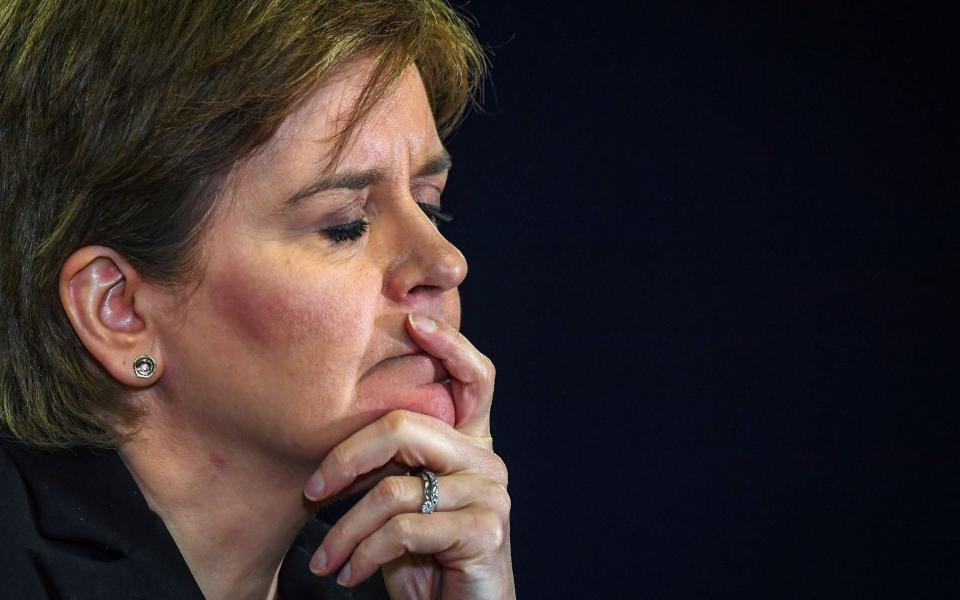Nicola Sturgeon’s generous pension lands her with an £8,000 tax bill

Nicola Sturgeon has been hit with an £8,000 bill after the value of her MPs’ pension grew more than tax-free limits allow.
The First Minister's tax returns, which she made public this week, showed that in the last year alone Ms Sturgeon saved £58,331 into her generous public-sector pension, breaching the £40,000 annual limit on tax-free pension savings and landing herself with £7,991 in additional income duties.
There is no limit to how much can be saved into a pension scheme each year. But there is a limit to how much can be saved tax-free. Andrew Tully of pension provider Canada Life, said: “If you build up more than £40,000 into your pension in a year, as Ms Sturgeon has, then the excess contributions are taxed as additional income.”
Steven Cameron, of pension provider Ageon, said Ms Sturgeon’s tax charge illustrated “the huge generosity of public sector pensions”.
Members of Parliament enjoy generous “defined benefit” pension schemes which generate a guaranteed, inflation-proofed income in retirement.
The newly published tax returns show that on top of her £140,000 annual salary, Ms Sturgeon has accrued over £450,000 in pension savings.
Ms Sturgeon has hit the annual allowance every year since 2015 because of the substantial growth in her retirement benefits. The biggest charge she faced was worth £28,320 in 2016-17, after exceeding her available allowance of £10,941 by £64,902, her accounts showed.
Sean McCann, of financial advice firm NFU Mutual, said: “As a member of the Scottish Parliamentary final-salary pension scheme, an annual allowance tax charge will have been triggered not because of the amount paid in by Ms Sturgeon or her employer, but because the capital value of her benefits under the scheme has exceeded the £40,000 tax-free limit.”
Some 41,000 savers breached the annual allowance last year, according to official figures.
Those in Ms Sturgeon’s position who are going to hit the £40,000 limit might be able to use “carry forward” to cut their tax bill. This is where unused annual allowances for the three previous years are brought forward.
But this was not an option for Ms Sturgeon, Mr McCann said. “It looks like she has no unused allowance available from the previous three years to cushion the blow and as a result has triggered the tax charge.”
Taxpayers who fall foul of the annual allowance rules can either pay the charge upfront or pay back what they owe via their pension scheme. Ms Sturgeon has agreed to pay through her pension scheme, reducing the amount of pension she will be entitled to.
Nimesh Shah, of accountancy firm Blick Rothenberg, said: “This is a sensible approach, from a tax perspective, as she would otherwise pay income tax in the future on that amount when she withdraws from her pension.”
The Scottish National Party declined to comment.

 money
money 